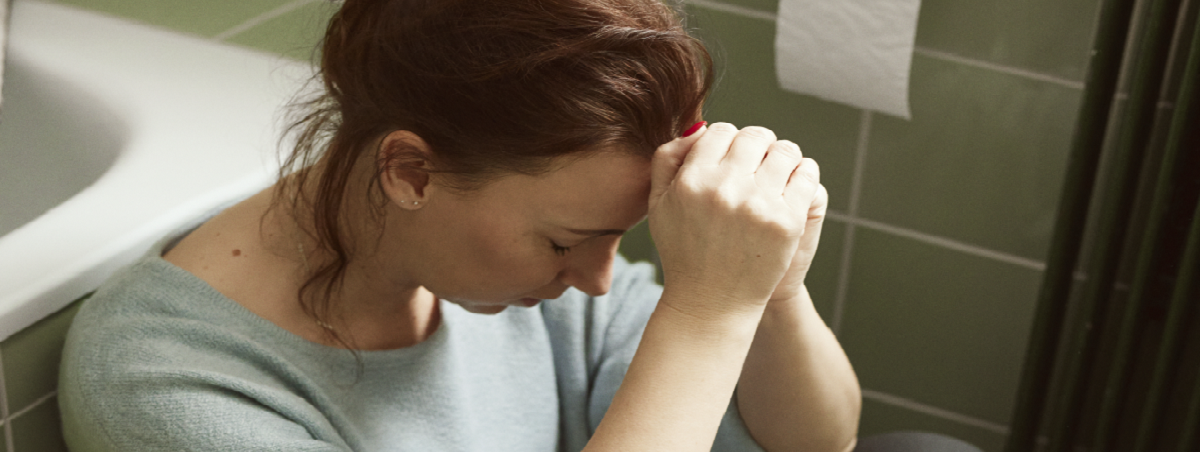13 tips for dealing with nausea during pregnancy

About half of all pregnant people experience nausea – mostly in the morning. It usually starts after about a month. And it usually passes around three months in. But some people feel sick and vomit throughout their pregnancy.
Many people who suffer through classic morning sickness agree that the name is misleading. Because you don’t just feel sick in the morning; nausea can strike at any moment and some people are nauseous throughout the day, or only in the evening. In addition, this could be everything from feeling sick for a few days to daily vomiting for months.
13 tips for avoiding pregnancy-related nausea
- Eat light meals, preferably every two or three hours If you can’t keep food down, eat a little sugar (cane sugar or fruit).
- Nausea usually arises in the morning. It happens because you haven’t eaten in a long time and your blood sugar is low. So try eating a piece of crisp bread or some banana before getting up. It could also help to eat a little something before you go to bed.
- Choose mild, calorie-rich foods, like whole-grain bread, rice, pasta and potatoes. People often feel better with a high-carb snack, like fruit or a sandwich. Eat fruit and veg that are non-acidic, i.e., that are not sour. Avoid meat, and spicy, oily and deep-fried foods; instead, try boiled and vegetarian foods, which can be soothing.
- Listen to your body and what it wants, but try to eat a diet that is as healthy and well-balanced as possible. You might crave unusual things or foods that you don’t usually eat. It’s okay to give in to the cravings as long as that doesn’t mean eating loads of sweets, snacks, or sweet drinks.
- Nighttime sleep is important, but so is resting for a while during the day if you can. Most people become incredibly tired during the first few weeks of pregnancy, which can lead to more nausea. Fresh air and walks can soothe nausea and be good for your body.
- Drink lots of water, sparkling water, or milk, especially if you are vomiting often.
- Avoid coffee and black tea.
- Try acupuncture – some people find that it helps.
- Avoid sailing and long car trips if you tend to get seasick or carsick.
- Anti-nausea wristbands are available at some pharmacies or online. They work by activating a special acupressure point on the wrist.
- Avoid cigarette smoke and combustion gas.
- Sometimes nausea can be so severe that you need medication for relief. Medicine for car sickness is available over the counter at pharmacies.
- Prescription medications are also available if nothing else helps – always talk to your midwife or doctor first. They can also see if the condition is so severe that you need to go on leave.
When does pregnancy-related nausea start?
Nausea usually kicks in around the sixth week after your last period. For most people, it disappears around week 14, but for some it can last the duration of pregnancy. Nausea is due to a drop in blood sugar and/or to hormone fluctuations. But not everyone feels sick. And if you don’t – or if you just have mild nausea for a few weeks early on – that doesn’t mean anything is wrong; it means you’re lucky!
If you can’t keep food down
Some people might feel sick – and simultaneously ravenous. But it’s tough to eat if you’re constantly throwing up. Don’t worry about the baby; it will get what it needs to grow. Nature makes sure of that! As long as you don’t feel so bad that you can’t keep food down for several days, or that you can’t get enough fluids, you don’t have to worry.
Eat what you can manage, even if it’s all the same thing. Get rest and contact your healthcare provider for support. The danger of vomiting a lot is in becoming dehydrated, which is evident from dry mouth, peeing less often, and feeling tired and dizzy. If the situation is that severe, then contact your healthcare provider.
Please note that all information above is based on Swedish recommendations.

